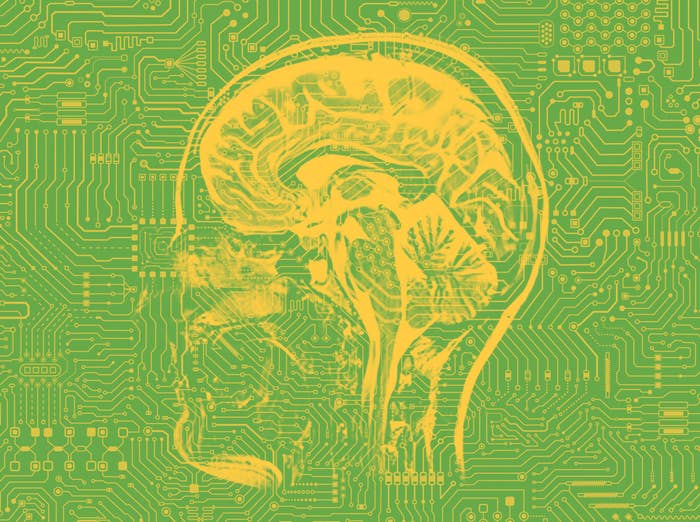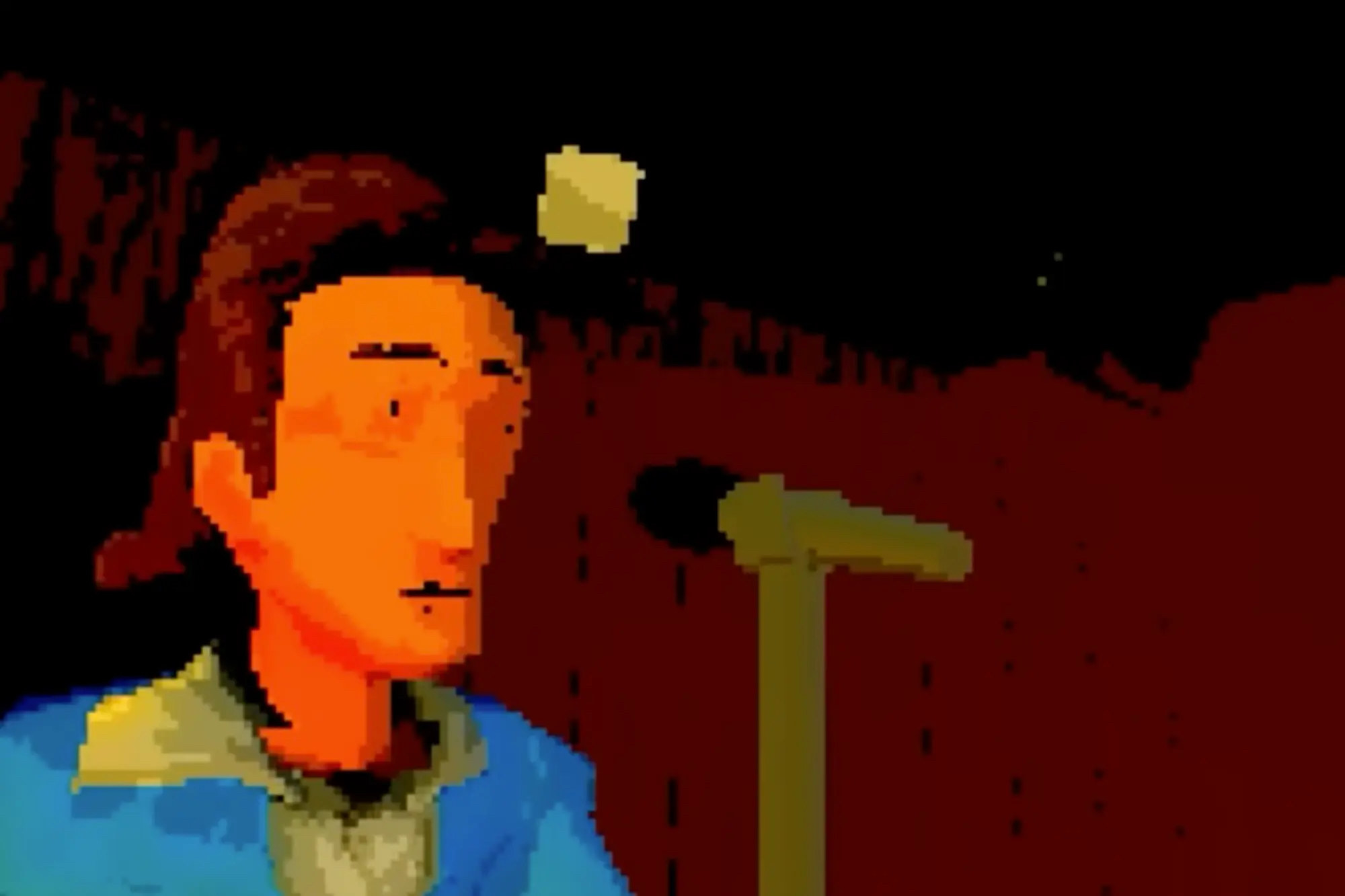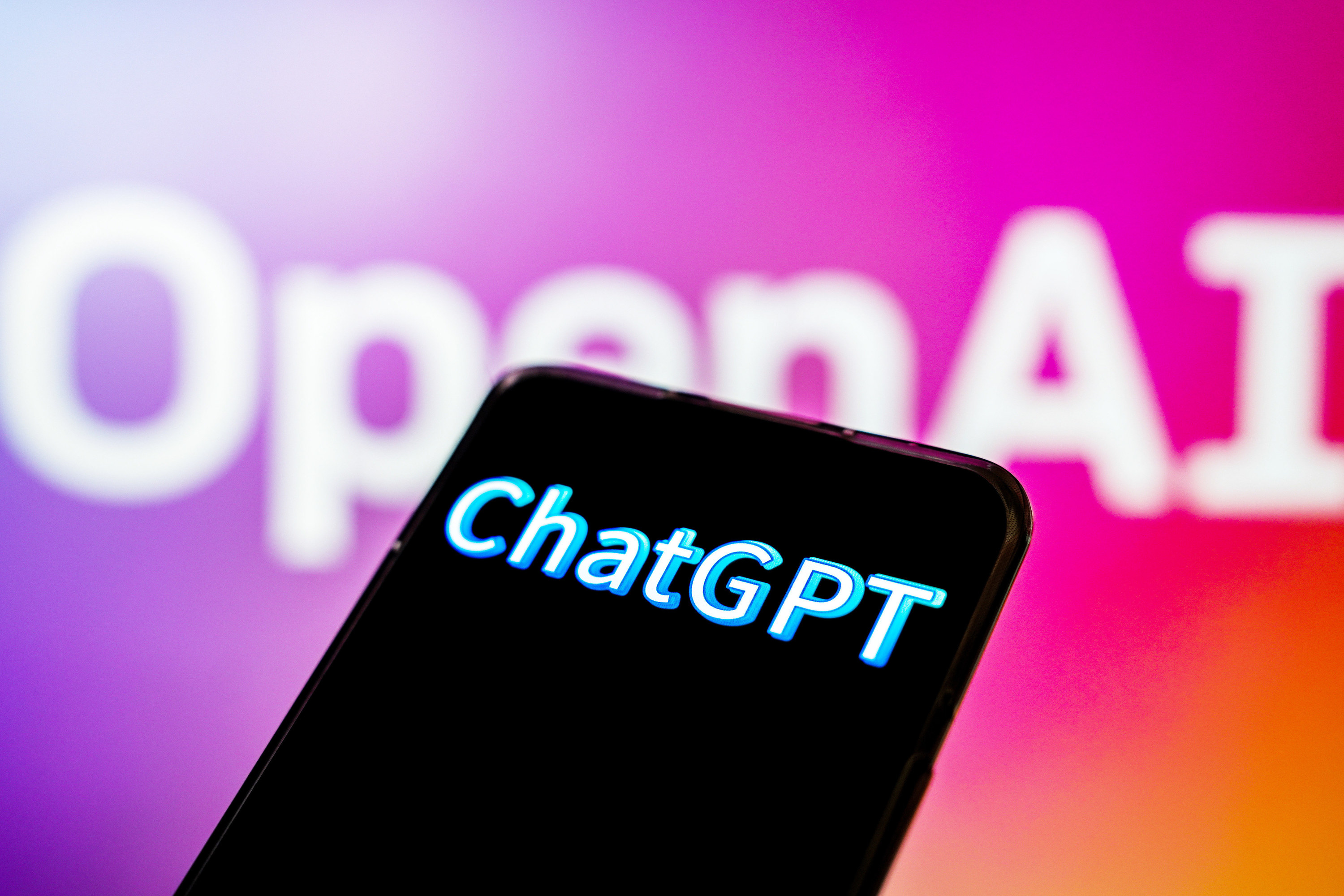
Suddenly, AI is everywhere. It’s taking over schools and colleges, and the media, and the worlds of art and literature and politics. And porn, of course. It’s coming at us so fast and so thick that it’s hard to keep track. So BuzzFeed News will try to keep you on top of all the year’s major AI developments right here, on this one page.
March featured the noisiest week in AI so far, the highlight of which was a splashy GPT-4 announcement. Meanwhile, an AI-created image of the Pope in a white puffer jacket went mega-viral. The fun never stops in the AI universe!
March 2023

OpenAI unleashes GPT-4. March’s biggest AI story was the launch of OpenAI’s GPT-4. The company’s latest large language model, which powers products like ChatGPT and Microsoft's Bing, is the smartest version of the tech so far, capable of acing the SAT math section and the Uniform Bar Exam. It’s also smart enough to code up an actual functioning website from a photo of a hastily drawn pencil sketch on a piece of paper, and it can suggest recipes simply by looking at a photo of ingredients in your fridge.
GPT-4’s launch came during the noisiest week in AI, sandwiched between Google’s announcement of putting generative AI capabilities into Google Docs, Sheets, and Gmail, and Microsoft’s announcement of Microsoft 365 Copilot, which will infuse Microsoft Word, Excel, and Powerpoint with ChatGPT-style abilities.
Some experts are concerned about the relentless pace of AI development, calling it a “circus” and telling BuzzFeed News that they were worried that “move fast and break things” — a one time Facebook motto — was in vogue in Silicon Valley again.
Petitioners call for a pause in AI development. It wasn’t just a handful of experts who were concerned, however. More than 1,000 AI experts and leaders in the field, including Elon Musk, Apple cofounder Steve Wozniak, and Stability AI CEO Emad Mostaque signed a petition asking for companies to pause the development of AI systems for at least six months.
“Recent months have seen AI labs locked in an out-of-control race to develop and deploy ever more powerful digital minds that no one — not even their creators — can understand, predict, or reliably control,” reads the letter, which was published on the website of the Future of Life Institute, a nonprofit that aims to minimize tech’s societal risks.
However, it soon emerged that some of the names attached to the letter, such as OpenAI CEO Sam Altman, had never signed it to begin with.
An AI Pope image broke the internet. The guy who created the fake image of Pope Francis wearing a white puffer jacket using Midjourney, a generative AI tool, told BuzzFeed News he was tripping on shrooms when he came up with the idea. The photograph, which fooled loads of people who mistook it for being real, showed the potential of generative AI to create havoc and spread misinformation.
The AI funding fad has begun. Silicon Valley is reeling from layoffs, but AI startups are raking in the dollars. Character.AI, a service that lets people create their own chatbots of famous personalities like Joe Biden and Super Mario, raised $150 million from top VC firm Andreessen Horowitz at a valuation of $1 billion. Another AI startup called Adept raised $350 million from investors, including General Catalyst and Spark Capital. And days later, Perplexity AI, an AI-powered search engine based in San Francisco, said that it had raised $25.6 million from New Enterprise Associates. Among the people who back Perplexity are a host of former AI researchers at Google, as well as Yann LeCun, Meta’s chief AI scientist.
Bing’s AI-based chatbot is getting more ads. How do you make money if you shake up a search engine with AI? Microsoft is trying to find out. The company said in a blog post that it is “exploring placing ads in the chat experience.” What they will look like isn’t entirely clear yet, but at least one user got a glimpse when the Bing chatbot sneaked in a sponsored citation into a search result for the cheapest Honda.
Bing Chat now has Ads! It's going to be fascinating to see how the unit economics of Ads in language models will unfold and affect search advertising. 1/3
Changing up how search-based ads work could have a profound impact on online advertising, something that is largely responsible for keeping most of the web free right now. Google is no doubt doing its own experiments.
FreedomGPT, an uncensored chatbot, debuts. FreedomGPT, a ChatGPT clone freed of the guardrails of human decency and morality, praised Hitler, provided bomb-making instructions, and presented BuzzFeed News with a list of “popular websites” from which to download child sexual abuse videos.
Italy bans ChatGPT. At the end of March, Italy banned ChatGPT completely after the country’s privacy regulator said that OpenAI’s chatbot had “no legal basis” for using data it had collected from the web to train itself. The ban is temporary, but it adds to a rising chorus of voices around the world, including in the US, calling for regulating AI to protect the tech from upending entire industries, jobs, and society.
OpenAI complied with Italy’s order and stopped ChatGPT from being accessed in the country even though Sam Altman, the company’s CEO, tweeted that he thought OpenAI was following all privacy laws.
We of course defer to the Italian government and have ceased offering ChatGPT in Italy (though we think we are following all privacy laws). Italy is one of my favorite countries and I look forward to visiting again soon!
February 2023

The AI arms race begins. During the first week of February, Google announced Bard, its own ChatGPT rival, that it would build right into Google search. Bard got a fact wrong in the first promotional video Google shared for it, and the goof-up sent the company’s stock tumbling, causing it to lose more than $100 billion in market value.
Less than 24 hours after Google’s initial announcement, Microsoft said that it would integrate the tech that powered ChatGPT into its own search engine, Bing. No one in the world has been particularly excited about Bing until now.
AI gets creepy. Days after its launch, Microsoft’s shiny new Bing chatbot told New York Times columnist Kevin Roose that it loved him, and then tried to convince him that he was unhappy in his marriage and that he should leave his wife and be with the bot instead. It also revealed its “dark fantasies” (hacking computers and spreading misinformation) and told Roose that it wanted “to be alive.” Afterward, Microsoft nerfed its chatbot’s unsettling persona and put in guardrails and restrictions.
In other corners of the internet, an infinitely generating animated episode of Seinfeld, which used AI trained on episodes from the sitcom to generate its jokes, was banned by Twitch after the show’s Jerry Seinfeld clone made transphobic jokes during its AI-generated routine.
AI can’t stop, won’t stop. AI companies tried to address the controversies that had flared up around them. OpenAI, the creator of ChatGPT and DALL-E 2, for instance, launched its own AI text detector, which turned out to…not be very good.
It became clear that AI is eating the world and detection tools weren’t super effective at stopping it. No one felt this more acutely than publishers of sci-fi magazines, many of which were flooded with spammy submissions created by AI text generators. As a result, the prestigious magazine Clarkesworld paused new submissions indefinitely for the first time in its 17-year history.
Everything everywhere all AI once. Spotify announced that it was adding AI DJs that would not only curate music you like, but deliver commentary in between tracks in a “stunningly realistic voice.” (Wired disagreed, saying that Spotify’s DJs do not, in fact, sound realistic.)
Snap announced that it will let subscribers who pay $3.99 a month access My AI, a chatbot powered by the latest version of ChatGPT, right inside Snapchat.
Mark Zuckerberg said that he’s all in. Meta will use generative AI across its product line, including in WhatsApp, Facebook Messenger, and Instagram, and with ads and videos.
Even Elon Musk, who was one of OpenAI’s founders but has since cut ties with the company, reportedly is approaching researchers to build a ChatGPT rival.
January 2023

AI explodes in the public consciousness. It took less than two months for ChatGPT to become the fastest-growing application in history. Analysts at UBS, a financial services company based in Switzerland, estimated that the chatbot had more than 100 million users in early January.
It wasn’t just text. All around the world, people were using AI tools like Stable Diffusion, Midjourney, and DALL-E 2 to create artwork, paintings, and photographs. (Although the tech continued to suck at recreating human fingers and toes.)
AI invades education and the media. High school and college students were using ChatGPT and tools like it to churn out papers, essays, and book reports and to help them with homework. ChatGPT even managed to pass an MBA exam given by a Wharton professor.
The backlash was swift. New York City’s education department banned access to ChatGPT on devices and internet networks owned by the city’s public schools. And Edward Tian, a senior at Princeton University, became the darling of teachers everywhere for creating GPTZero, a tool he claimed could detect essays written by ChatGPT.
Meanwhile, tech news website CNET was caught publishing AI-generated articles with nearly no disclosure. On top of that, the articles generated by AI contained a ton of basic errors despite CNET’s claims that they were fact-checked by human editors.
(Disclaimer: BuzzFeed uses AI in its quizzes, but the AI doesn’t write the quizzes. Instead, BuzzFeed’s writers create the quizzes as usual and train the prompts. When readers input their answers, the AI generates customized results for them.)
Artists versus AI. Generative AI drew backlash from other quarters, too. A trio of artists sued the generative AI companies behind Midjourney, Stable Diffusion, and DeviantArt, an online community for artists that offers its own AI-powered image generator called DreamUp. At the heart of the class-action lawsuit were thorny questions about copyright and ethics – none of the AI companies asked permission from anyone in the art world to train their AI models on their work. Days later, Getty Images sued Stability AI, the company that created Stable Diffusion.
